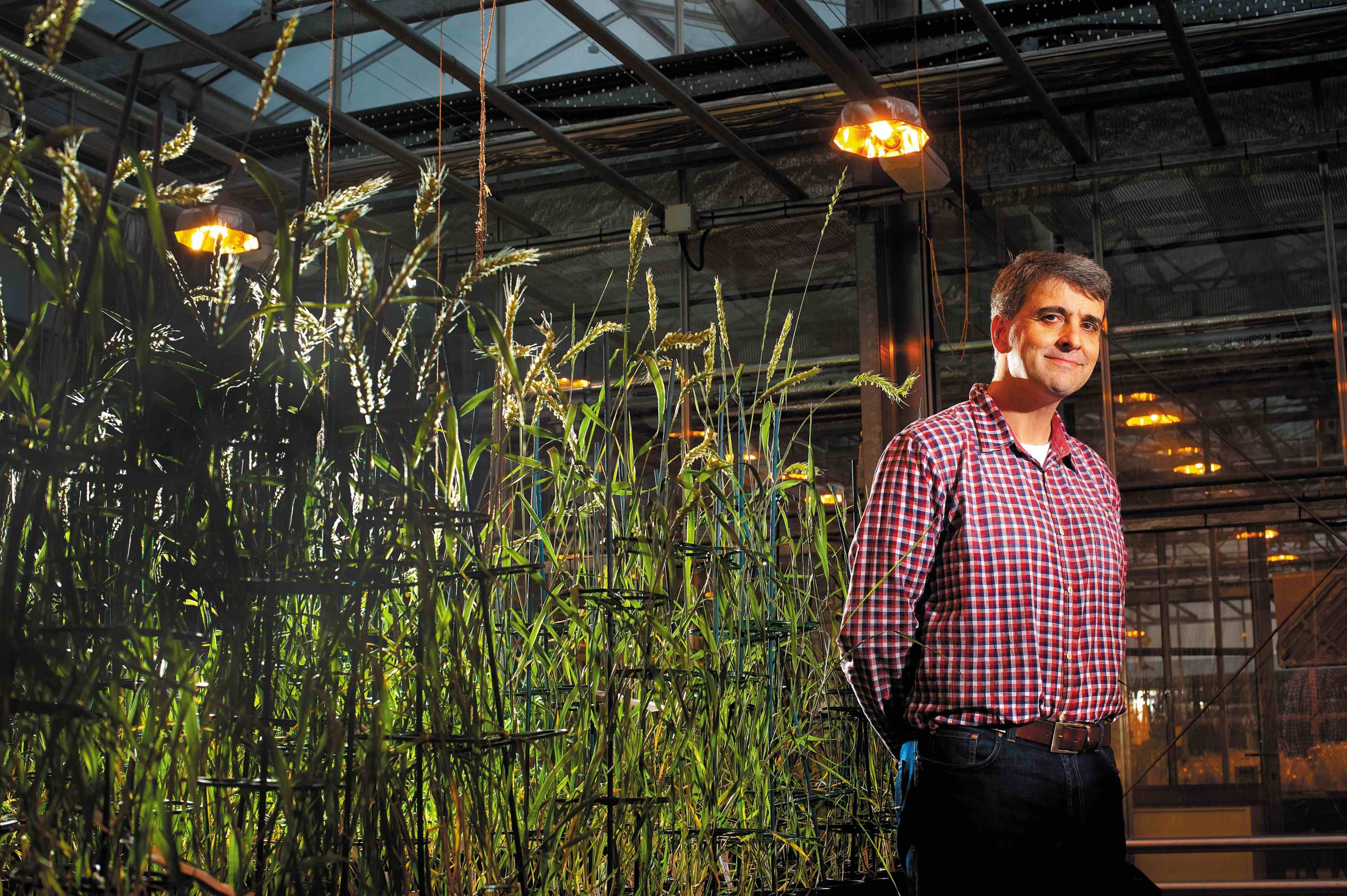
December 8, 2021, by Lexi Earl
Swift: A ten minute coffee with Prof Malcolm Bennett
Malcolm Bennett is a Professor of Plant Science and a member of the Future Food Beacon leadership team. He was recently recognised as one of the most Highly Cited Researchers 2021 by Clarivate Analytics (based on data from Web of Science).
Tell us about your research in 10 words or less…
Futureproofing crops by discovering how roots adapt to environmental stresses.
Now, explain your research for a lay audience
I am fascinated how plant roots constantly monitor their local soil environment to identify where resources like water and nutrients are located, and then use this information to optimise their growth and development. For example, roots are able to detect where water is available, altering their growth towards this source (like a water diviner). Discovering exactly how roots ‘sense’ water availability would greatly aid efforts to future proof crops to climate change and associated environmental stresses such as drought or erratic rainfall. Our team is currently identifying the molecular machinery plant roots use to sense water and other environmental stresses, which will enable us to re-engineer crops to become more resilient to climate change.
What do you enjoy most about your work?
That ‘light bulb’ moment discovering exactly how a biological process works. It’s a priceless experience which members of my team and I have been privileged to enjoy together on several occasions in recent years. I also really enjoy mentoring extraordinarily talented early career researchers (ECRs) in my team and wider Root Group. It is an incredible privilege to help support ECRs at this critical stage in their development as they move towards becoming independent group leaders.
What are the challenges?
Funding is always a major limitation, even in a well-resourced group like our own. The pandemic has also had a major impact on the way we perform and communicate our research. International travel to field sites to collect samples or participate in overseas conferences to present our results has been particularly affected.
How have the challenges impacted on your approaches to your research questions?
We have learnt to become much more resourceful by pooling resources and expertise with international collaborators during the pandemic. A good example is how we managed to complete a highly demanding programme of research for a recent Science paper (Pandey et al, 2021). Undertaking this project would have been impossible for our group as our UK lab was closed for 5 months during spring/summer 2020. However, by working as a well-integrated team, drawing on disciplinary expertise and access to lab facilities of colleagues in China, USA and Europe, we were able to successfully complete the project and Science paper.
Is there anything you’ve found surprising in your work? Something you weren’t expecting?
I tell my students that “plants are not green animals” as they often employ surprising ways to sense things. A recent example is how plant roots sense hard soil. We discovered that, rather than directly sense the mechanical properties of hard soil using a mechano-signalling mechanism like animals do, roots do this by releasing a gaseous signal ethylene. If the soil is soft, ethylene rapidly diffuses away, but hard soil contains few interconnected air spaces, causing the gaseous signal to accumulate around the root and stop growth. Hence, roots exploit changes in the structure of soil to sense hardness (rather than detecting this directly), which represents a unique solution for sensing its external environment.
What kind of impact has your research had/do you hope it will have?
Understanding how plants sense their environment provides new opportunities to genetically manipulate these responses and improve crop performance. For example, discovering that plant roots use ethylene to sense hard soil has led our team to develop ethylene insensitive crops whose growth is much less sensitive to hard soils. Compacted soils (often caused by heavier modern machinery) result in yield losses of >25% or even more when combined with stresses such as drought. Compaction resistant crops would help address a major problem in intensive agriculture which impacts ~50% of arable land in Europe, whilst helping climate proof future crop varieties.
Do you work in collaboration with others? Who do you work with, and how does this impact the research?
Collaborations are critical for research, particularly as our scientific approach is highly inter-disciplinary. No single team can master many disciplines, but demands a highly collaborative approach instead. For example, our recent research discovering how roots sense hard soils involved researchers from mathematics (Olivier Martin, Paris), soil science (Sacha Mooney and Craig Sturrock, Nottingham), stress physiology (Sjon Hartman and Rens Voesenek, Utrecht), together with plant (Bipin Pandey, Nottingham) and crop sciences (Guoqiang Huang and Dabing Zhang, Shanghai). This interdisciplinary viewpoint enabled us to discover that the solution to how plants sensed hard soils was outside the root itself…
Do you have any advice for future scholars?
Do not limit yourself by working within one discipline. Major scientific breakthroughs are much more likely to occur at the interface of disciplines. Have the courage to reach across disciplinary boundaries and start to talk….
If you could change one thing about research, what would it be?
I would significantly increase investment in UK R&D beyond the goal of 2.4% GDP. UK research funding is currently ~1.6% GDP, meaning well established labs are funded whilst high risk/high gain research often employing disruptive approaches are overlooked. By doubling UK R&D budgets, a less risk averse approach would be adopted by grant panels and much more innovative research would be supported. The UK also can’t ‘go it alone’ but needs to develop long term international collaborative research partnerships such as through membership of the EU Horizon programme.
Read more Take 10 with profiles.
No comments yet, fill out a comment to be the first

Leave a Reply